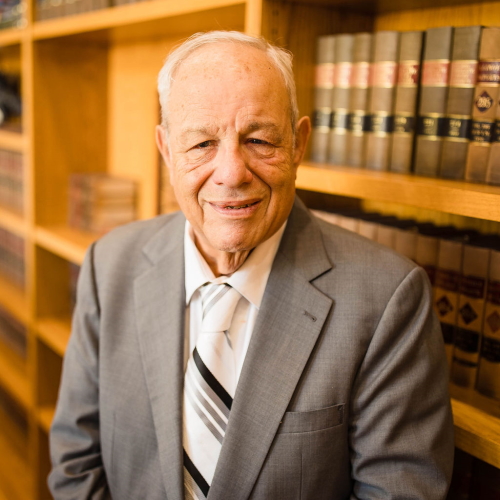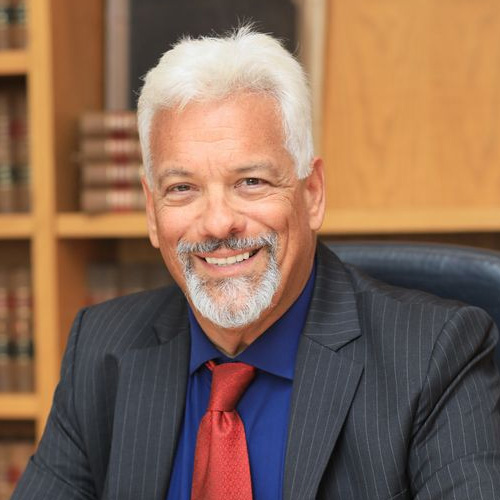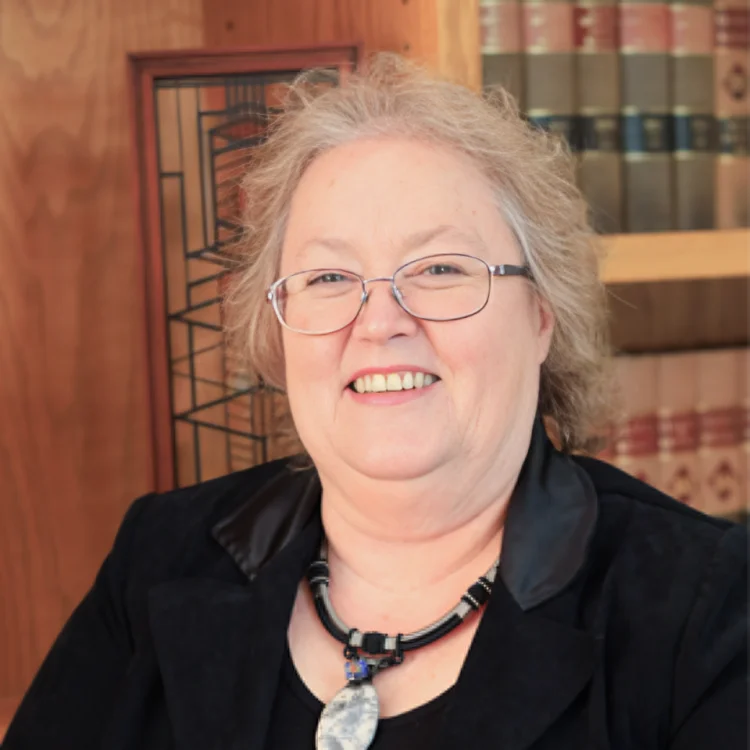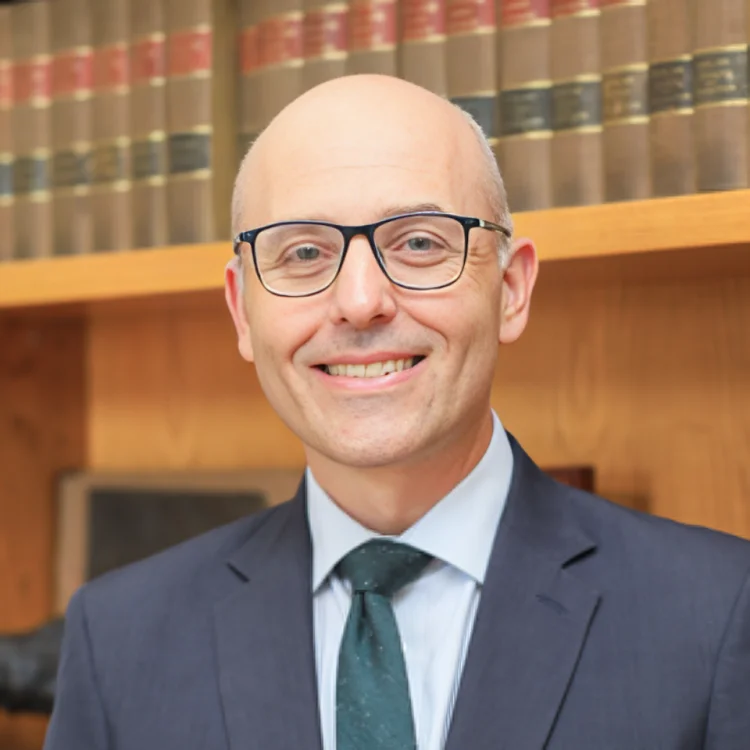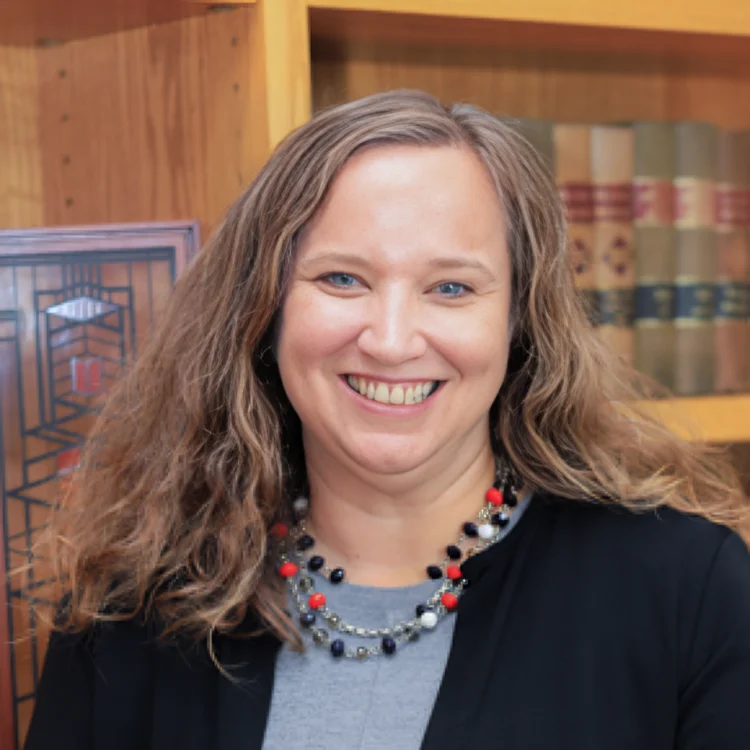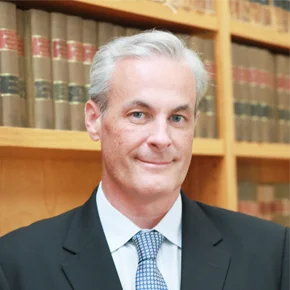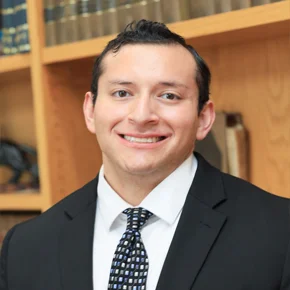By Chris Bailey
MARENGO — Like many workers today, Terrence J. McKenna knows what it’s like to have been the last guy hired before an economic downturn hits. “When the economy tanked, I was the low guy on the totem pole, so I was let go,” says McKenna of his experience just before joining Franks, Gerkin Ponitz Greeley P.C. in Marengo.
“I answered an ad for a divorce and general practice attorney,” says McKenna, admitting he had no divorce experience at that time early in his career.
“Herb (Franks) hired me,” says McKenna, adding that Franks was less concerned about his lack of divorce experience than in his long-term commitment to the firm and the community.
“I had to convince him I wasn’t looking at it as a stopgap before going back downtown,” says McKenna.
He can’t recall what he said to Franks back then, but he didn’t have a lot of qualms about moving to a more rural area, despite having been born in Evergreen Park and having been raised in the suburbs.
“My dad taught me to hunt and fish, so I already liked the outdoors,” says McKenna. “And my son was just an infant, so we looked at this area as a nice place to raise kids.”
But he’s still a Johnny-come-lately to the locals. “I’ve lived 22 years in Marengo,” he says, laughing. “And I’m still considered the ‘new guy’ here.”
He has never regretted the move, though, and he is confident it has helped him professionally.
“When you are a member of the community where you work, it’s much easier to build relationships, and to build a practice by word of mouth,” he says. “The attorney-client relationship is built on trust. It is easier to build that trust when you see the people you work for in the community. If you work in the city, you generally commute to the office and can be faceless to your clients.”
McKenna actually handled one divorce — for a “nice old lady,” he says. But a hotel acquisition in which he was involved early on took a lot of time and showcased his transactional strengths, he says. McKenna wasn’t asked to do another divorce.
He didn’t find and develop his strengths by following a straight line. McKenna was the first member of either side of his family to graduate from college, departing Northern Illinois University in DeKalb with a bachelor’s in finance in 1986.
Reaching even that milestone took some mid-stream revision. He had chosen NIU because it had the second highest Certified Public Accounting Test passage rate, and he planned to focus on accounting.
“During my second accounting class, I decided I preferred finance,” he says, laughing. “I learned I’d rather put my head in an oven than do accounting full time.”
Any stray accounting genes he had, though, apparently weren’t wasted. They were passed along to his son.
“He loves all that stuff,” says McKenna, grimacing in remembered distaste.
McKenna admits that he might have initially been drawn to the law by the notion that it was glamorous. “But I never watched John Houseman. As a kid, the advice I heard being given when someone needed an answer was ‘go get a lawyer.’ It was only after I finished law school and started practicing that I realized how little lawyers really know. We can find the answers, though.”
No Tissues, Please
Of his interest in law school, McKenna says, “I didn’t have anybody telling me I couldn’t do it. And I really liked the mental challenge of law school.”
He graduated in 1989 from the DePaul University College of Law in Chicago, having learned that most of the law involved little glamour.
“Nobody goes to law school to do what I do,” says McKenna, laughing at the idea. What he does is 20 percent estate planning and 80 percent transactional law, that “smallprint” area of the law that tends to boggle the minds of non-lawyers. He works for banks, businesses and individuals in areas of real estate, corporate, land use, estate planning, wills and trusts, and probate law.
“I don’t like practicing law with a box of Kleenex on my desk,” says McKenna of the fate of divorce lawyers and other in-court combatants. “All litigation is a little that way. In transactional law, the goal is pretty much the same for both sides. Both parties are trying to get a deal closed.
“But I’ve never met a seller who didn’t think they were giving away the farm, and I’ve never met a buyer who didn’t think they were paying top dollar. Buying or selling a dream home can still be quite emotional, but business law generally generates less emotion.”
McKenna considers himself fortunate to have been able to practice “sophisticated transactional law” that can include major hotel property management or the recently completed $60 million sale of 10 radio stations. The sagging economy has transformed his work in a number of ways recently, too.
“Our area was hit every bit as hard as other areas,” he says. “We lost jobs across the spectrum. It’s different, but there’s been a little bit of a boom, too. Guys who were let go are going out and forming their own businesses. And there has been a lot of resale, mortgage and foreclosure work in addition to working out new deals with borrowers.”
What McKenna truly seems to enjoy is being outnumbered, as he was during the lengthy radio station sale.
“In these larger deals, I enjoy when it is several attorneys versus just me,” says McKenna. “For some reason, I like that,
being able to do it myself. I’m not afraid of being outnumbered.”
What his clients appreciate most, though, may be his ability to understand their needs and his complimentary skill in translating legal minutiae into something they can understand.
“Terry was referred to us through a common investor over 20 years ago,” says Edward Doherty, president of the Mt. Prospect-based Bricton Group, a hotel management group with 25 hotel and B&B properties across the nation. “He has helped us with acquisition, management contracts, franchising, lenders, financing, disposition of assets and day-to-day legal services. He’s a de facto part of the Bricton Group.
“His ethics are beyond reproach, he’s very persuasive and is a strong advocate,” says Doherty. “He conducts himself and represents us to the highest standard. That he has a business background is also invaluable because he understands the business implications in addition to the legal ones.”
“I’ve never met a seller who didn’t think they were giving away the farm, and I’ve never met a buyer who didn’t think they were paying top dollar.”
Michelle Toll, vice president of the State Bank Group, which includes banks in Wonder Lake, Johnsburg, Spring Grove, Lakemoor and Hebron, would agree.
“Terry brings strong analytical skills, especially in contracts that, for the most part, put other people to sleep,” she says of the man she has known for 16 years. “He also helps you comprehend complex issues and helps bring perspective to the lay person.”
Toll is in contact with McKenna at least weekly, including with a lot of work involving vendors and contracts.
“He makes you feel you are in good hands,” she says. “He has a great sense of humor, and he has often got a sparkle in
his eyes. His interpersonal skills are very important, but his real ability is in making you feel he’ll persevere.”
Joe Ponitz, a colleague at Franks Gerkin Ponitz Greeley, says McKenna has a real knack for attending to details. Ponitz says
McKenna helped him develop that skill after he joined the firm.
“He also shows a lot of foresight,” says Ponitz. “He’s very good at protecting his clients into the future.”
Ponitz calls McKenna “somewhat reserved at the office, though he doesn’t hesitate to speak up when it’s needed.”
According to Ponitz, McKenna is also a very serious guy on the golf course.
Out of His League
“I’m not a golfer in his league,” says Ponitz. “I’m a ‘have fun’ kind of golfer. Terry’s a serious golfer.”
So, just how serious a golfer? “Terry was recently in Florida when it was raining and in the low- to mid-30s,” says Ponitz. “He went golfing anyway. I can’t think of anything I’d rather do less than golf in the rain with temperatures in the 30s.”
Ponitz’s story likely wouldn’t surprise Tom Seranko, a longtime McKenna friend and an owner of a Bensenville-based construction company, Crouch-Seranko Masonry.
“Our relationship is both personal and professional,” says Seranko. “We’ve been friends since high school, and he’s my corporate attorney. He helped us with incorporation 12 years ago and with the purchase of a building eight years ago. He helps us with all sorts of business issues. He’s tops in integrity and tops in honesty.”
And yes, Seranko and McKenna have spent some time on the golf course together.
“I’m not as serious or as good as Terry is,” says Seranko of his golf skills. “He is very serious, and he is very good. But that’s kind of his approach to all areas of his life, to tell you the truth. He’s the most honest, caring, hard-working person I know.”
That hard work included helping to form and incorporate the Marengo Area Schools Education Foundation, a group dedicated to raising money for the local school districts. Although no longer on the board, he remains proud of his early involvement.
He’s proud of his family, too, a family that includes son Terry, a 2014 DePaul University graduate, and daughter Caitlin, now in her third year of a nursing program at Loyola University in Chicago. Both graduated from Marian Central Catholic High School in Woodstock.
McKenna met his wife of 27 years, Jill, while working a summer job during college. They still work together frequently, as she is a closing agent for Attorney’s Title Guaranty Fund.
McKenna says he likes to play golf — no surprise there — and enjoys travel. The McKennas have traveled as a family
domestically, and he has been to Hawaii and Europe a couple of times.
Has this dedicated, resolute golfer actually traveled to Scotland to play in the land of its invention?
“I did golf in Scotland,” he says, laughing. “But I was really there because my son was playing soccer there.”
He and his wife are quite ready to embrace their empty nest freedoms, but McKenna admits they are going at it in an unusual way.
They recently bought a three-story townhouse in Woodstock to replace the ranch home in Marengo in which their
children grew up.
Does that mean they waited to buy a home in Woodstock until after they were done driving all those miles back and forth to their children’s high school there? Yup.
“And most people our age are looking to move into a ranch,” says McKenna, “while we’re moving to a townhouse with
all those stairs.”
He chuckles and concludes, “I think we might be doing things a little bit backward.”

